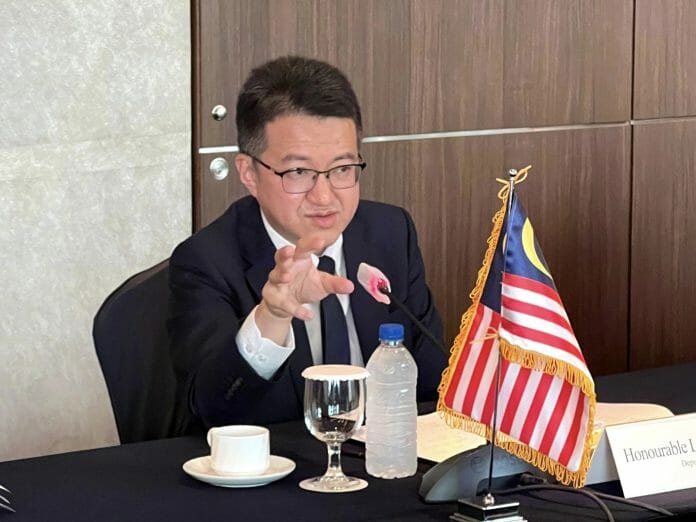Deputy Minister of Investment, Trade and Industry, Liew Chin Tong representing Malaysia at the virtual meeting of the HighLevel Task Force on ASEAN Economic Integration’s (HLTF-EI) Direct Interface on Feb 20, emphasised ASEAN’s importance in creating a unified regional market and joint industrial plans to strengthen supply chains, especially in sectors like semiconductors.
This initiative, especially crucial for sectors like semiconductors, aims to strengthen the regional supply chain and promote a non-aligned foreign policy stance. Tong said it is essential for ASEAN to enhance policy coordination and collaboration to avoid geopolitical tensions and reinforce the existing supply chain.
“ASEAN needs to work together closely to take the once-in-generation global flow of investment into the region as a consequence of US-China geopolitical competition and put in place collective policies and actions to create a middle-class society.” he added.
He also called for ASEAN to aim for a middle-class society like China’s rapid growth. ASEAN envisions itself evolving into a middle-class society by 2045, drawing inspiration from China’s remarkable transformation over the past two decades.
China’s experience, with its middle-class population growing from 100 million to 400 million since joining the World Trade Organization in 2001, serves as a model for ASEAN’s aspirations. Achieving middle-class status should be a central goal, influencing various policies across ASEAN member states, he said.
This vision entails ensuring that there is no degradation in labor standards and wages, thereby fostering a shared aspiration for higher standards across the region. By elevating labor conditions and income levels, ASEAN aims to cultivate a population that not only participates in the workforce but also emerges as consumers. A robust middle-class in ASEAN, coupled with a large market and a non-aligned geopolitical stance, would generate positive outcomes, contributing to a more stable and peaceful global environment.
He further added, “…for ASEAN to integrate quickly and become a stronger economy and thus a more consequential global political force, it must move faster to simplify, standardise and harmonise the intra-ASEAN market.”
While consensus remains crucial, the approach should involve “pathfinders” – willing member states that initiate integration efforts without waiting for unanimous agreement.
He said a project-based strategy with defined timelines and objectives is essential, starting with setting standards for emerging sectors like digital trade, electric vehicles, and renewable energy. “The new generation of ASEAN leaders should be bold and dare to aim higher, at a much faster speed. Now is a once-in-a-generation chance to make ASEAN a globally consequential economy and political force.” he added concluding his speech.









